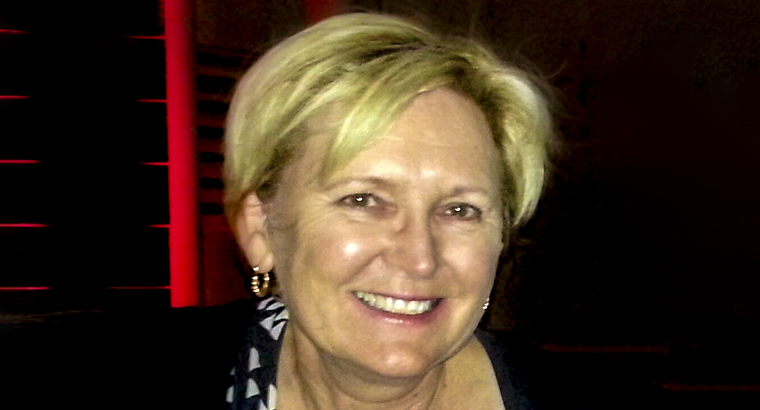Feature
Helping patients with COPD ‘live their dreams’
COPD is a disease that can make everyday tasks difficult to manage – but it doesn’t have to stop people living full and satisfying lives.
 Having COPD does not have to stop people from living full and satisfying lives, as is evidenced by Clayton Dyer.
Having COPD does not have to stop people from living full and satisfying lives, as is evidenced by Clayton Dyer.
The words Clayton Dyer heard during a hospital appointment in 2011 turned his life upside down.
‘My specialist said to me, “You have severe emphysema”,’ Mr Dyer told newsGP.
‘I was just dumbfounded. He explained to me a lot of stuff that was pretty serious, and I looked at him and said, “This is real, isn’t it?” and I think I went into a bit of shock.’
Although Mr Dyer had experienced asthma symptoms since his 20s and been diagnosed with chronic obstructive pulmonary disease (COPD) in 2006, he hadn’t prioritised his health due to other serious personal issues. But after his new diagnosis, he couldn’t put it on the back-burner any longer.
‘The first thing next morning, I stopped smoking,’ he said. ‘And I haven’t smoked since.’
Mr Dyer’s illness had a significant impact on his life, making it too difficult for him to find another job when, a year after his diagnosis, the company for which he worked went into liquidation. It also made it harder for him to do everyday things he could earlier take for granted.
‘Everything’s compromised, it’s that simple,’ he said. ‘There is nothing I could do five years ago that I can do exactly the same today.
‘Even showering, making beds – everything has to be timed, and it takes at least two or three times longer. But you mentally prepare yourself.
‘Like, if I know I’ve got to go somewhere, an appointment at the doctor’s or something, I prepare the night before. I know it’s going to take so long to get up, so long to get dressed, then I need to have a rest, then I’ve got to get in the car, then I’ve got to walk – you just plan your day out.
‘Even standing for any length of time can be strenuous; it just comes down to knowing what you’re capable of and staying within that parameter of a safety zone.’
Despite these challenges, Mr Dyer is a perfect example of the Lung Foundation’s campaign for World COPD Day this year, ‘Don’t let shortness of breath stop you from living your dreams’.
‘I am grateful for the illness I have, because it’s made me the person I am today and given me more opportunities than I could have done if I was working full-time,’ he said.
‘I still live a pretty full life; you get out and do what you can do. I do a lot of self-monitoring, keep as busy and active as possible.
‘It’s also given me time to look at life more philosophically and more spiritually. And that’s given me a better outlook on the illness.’
Dr Kerry Hancock, Chair of the RACGP Specific Interests Respiratory Medicine network, said it is not uncommon for COPD to go undetected until it is quite advanced. Much of the reason behind this is that patients often don’t recognise their symptoms as a sign of something more serious.

Dr Kerry Hancock believes GPs can play a key role in assisting their patients with COPD to keep busy and active.
‘The most usual symptom is breathlessness on exertion as a result of the dynamic hyperinflation due to the airway obstruction, and people often attribute this to age or lack of fitness,’ Dr Hancock told newsGP.
‘They often then restrict their activities because of the unpleasant nature of this breathlessness, and unfortunately this leads to downward spiralling deconditioning and increasing morbidity.’
Dr Hancock believes GPs play a key role in preventing this downward spiral and helping patients live optimal lives by diagnosing COPD and providing treatment.
‘Now, more than ever, we have the evidence about what can make a difference to people with COPD, regardless of the level of severity of their disease,’ she said.
‘We can assist people to give up smoking; we have an array of bronchodilators and a wide choice of devices to help with the dynamic hyperinflation that often prevents people with COPD from being more active.
‘And, most importantly, we can encourage and support our patients to participate in a supervised pulmonary rehabilitation program, continue with an ongoing exercise program and remain active, whether they have early, mild COPD or severe COPD, or are even oxygen-dependent.’
Mr Dyer believes it is also very important for patients with COPD and their GPs to be aware of the emotional side of living with COPD, and ensure they have a good network around them.
‘The main thing is that people have a good support system, be it family friends, doctors, church groups, social groups,’ he said.
‘It’s the emotional thing that gets a lot of people down. I think doctors should look at getting patients into meditation and mindfulness, which is great [to help] with chronic illness.’
Dr Hancock is passionate about the role GPs can play in the lives of their patients with COPD.
‘We can help keep them out of hospital, we can help keep them active,’ she said.
‘We can prescribe the right pharmacotherapies. We can refer to pulmonary rehab programs and encourage and support active lifestyles.
‘We can help people with COPD live their dreams. That is the difference we can make for our patients.’
Chronic obstructive pulmonary disease COPD Lung Foundation World COPD Day
newsGP weekly poll
Which of the following areas are you more likely to discuss during a routine consultation?